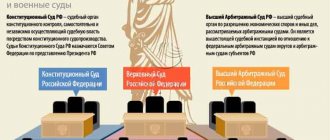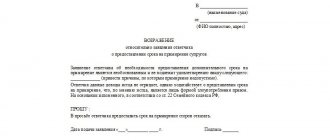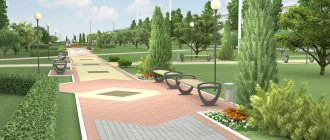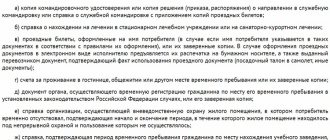The magistrate's court is considered a court of general jurisdiction. Its activities, list of cases, information about their composition, competencies and work regulations are fixed by the Constitution of the Russian Federation, Federal Law and regional laws. In fact, the magistrate’s court is the first stage of the system and deals with the analysis of circumstances of general jurisdiction using a simplified procedure. The claim will be considered within a month, as in the first type of instance. Here only situations from private individuals who independently filed a claim can be considered.
What cases are heard in the magistrate's court?
The full list of legal proceedings is recorded in Russian legislation:
- FKZ dated 02/07/2011 “On courts of general jurisdiction”.
- Federal Law No. 188 “On justices of the peace in the Russian Federation” dated December 17, 1998, etc.
At the same time, the laws do not fully reflect cases of a criminal and administrative nature. There are only a few references to other regulations that provide a comprehensive list.
What cases does the magistrate court hear ? The list of competencies of a justice of the peace is enshrined in Art. 3 Federal Law No. 188 dated December 17, 1998. The judge may consider:
- civil on property issues, requirements for collection of housing and communal services debts, property disputes up to 50,000 rubles, except for problems on inheritance issues and intellectual offenses;
- criminal cases for crimes with a punishment of no more than 3 years in prison, except for problems from Art. 31 Code of Criminal Procedure of the Russian Federation;
- administrative;
- family;
- claims under ZPP with claims of less than 100,000 rubles.
What is the purpose of creation?
Magistrates were first established in 1864 during the reforms. And the main goal was to ensure maximum access to justice for the majority of the population, since such positions were and are being created in areas, and the latter, in turn, are based on the population in a given territory.
It is worth noting that these are the busiest judges in our country. According to statistics, magistrates received the following for consideration: in 2001 (the first full year of their work) - approximately 1.3 million, in 2002 - 2.4 million, in the first half of 2003 - 1.5 million cases, which is 25.6, respectively; 47.6 and 57.6% of all cases received by the courts of first instance.
Magistrates completed: in 2001 - 1.2 million cases, in 2002 - 2.3 million cases, in the first half of 2003 - 1.6 million cases, which is 23.8, respectively; 46.2 and 57.0% of all cases completed by the courts of first instance.
It should be noted that in those subjects of the Russian Federation in which the process of forming justice of the peace has been completed, 60–70% of civil cases are considered by justices of the peace.
For ease of understanding, we will divide this topic into two parts: civil process and criminal process.
What issues are they solving?
Magistrate judges can consider claims for:
- criminal;
- civil;
- administrative proceedings.
Civil trials
The competence of the judge includes consideration of the following categories of cases:
- Disputes regarding the issuance of court orders.
- Divorce with children.
- Division of property acquired during marriage upon divorce.
- Other types of family law disputes, except for cases of establishing paternity/maternity, deprivation of parental status, adoption.
- Property disputes for an amount not exceeding 500 minimum wages.
- Disputes regarding labor relations, except for the reinstatement of an employee at work.
- Disputes regarding the determination of the order of use of land, buildings or other real estate.
If several circumstances are combined in one case, the subject of the dispute changes, or the defendant files a counterclaim, the newly emerged circumstances are referred to the district courts, and the others - to the magistrate, then the case will be considered in the district court.
Administrative processes
The magistrate may consider claims for the issuance of court orders regarding claims relating to the collection of amounts for mandatory payments and fines in accordance with the norms from Chapter 11.1 of the Code of Administrative Proceedings of the Russian Federation.
Criminal trials
Justices of the peace consider criminal cases for crimes for which they can impose punishment, its amount does not exceed 3 years of restriction of freedom. The following crimes are considered cognizable:
- With the infliction of grievous or moderate harm to human health, if the citizen was in a state of passion or exceeded the limits of defense or authority when detaining a suspect.
- In cases in which slight damage to health was intentionally caused.
- Beaten up.
- Torture.
- Causing injury or serious harm through negligence.
- Threats to kill or cause serious harm.
- For forced removal of organs for transplantation.
- When infected with a sexually transmitted disease.
- In case of intentional infection with HIV infection.
- For illegal abortions.
- Failure to provide assistance to the patient.
- When left in a dangerous situation.
- In case of illegal placement in psychiatry.
- In case of slander.
- When insulted.
- When sexually coerced.
- When interfering with privacy.
- In case of violation of the confidentiality of negotiations, correspondence and other communications.
- When entering someone else's home.
- If you refuse to cooperate with a citizen in providing him with any information.
- When interfering in the work of the election commission.
- In case of violation of labor safety standards.
- When obstructing the work of journalists.
- In case of illegal dismissal of pregnant women, mothers with children under 3 years of age.
- In case of non-payment of wages, benefits, pensions.
- When rights and freedoms are limited, etc.
Where can I see the solution?
The decisions taken by the participants in the trial are served in court against a signature, or sent by mail to their home address. If there is a need for a person who did not take part in the case to familiarize themselves with the decision, it can be found on the official website of the court, where all decisions are posted in the public domain.
- The decision can also be viewed on the Internet on the special resource of the State Antimonopoly Service of the Russian Federation “Justice”, or “Court decisions. RF":
- To do this, you need to enter the name of the court in any search engine and go to its official website.
- In the “Judicial Proceedings” section, a table will appear with a list of cases considered on certain dates. In this list you need to find the desired name; the decision on the case will be in the extreme column on the right.
- You can also find a decision by the name of the plaintiff or defendant, by the case number on the court’s website in the “Search for information on cases” section, where the name or case number is entered in the file that opens, the “find” button is pressed and you can view the results of the consideration.
What cases are not considered
The list of cases that can be heard in court is extensive. At the same time, the magistrate’s court does not consider:
- claims for property disputes, if the amount recovered exceeds 50 thousand rubles, for the PPP - 100 thousand rubles;
- divorces in the presence of minor children in the family, if issues regarding their upbringing, place of residence and other disputes for the children are resolved;
- cases of deprivation of parental rights and adoption of children;
- all criminal cases, if restriction of freedom is provided for more than 3 years;
- criminal and civil cases, if they should be considered by district or city courts.
Evgeniy Baidalin
Practicing lawyer in civil and arbitration cases. More than 8 years of experience
Ask a Question
Before filing an application with the court, you need to find out what territorial jurisdiction is there. You can view the information on the website of the State Automated System of the Russian Federation “Justice”.
How to determine territorial jurisdiction by address?
To submit an application to the court, it is first necessary to determine the territorial jurisdiction. To do this, it is best to use the State Automated System of the Russian Federation “Justice” service, which allows you to determine the specific area whose judge will consider the application.
- To do this, you need to open the service on the Internet using this link.
- In the “I’m looking” section, click on the circle with the name “magistrate’s precinct”; when it turns blue, go to the next section “Subjects of the Russian Federation”, use the mouse to place the cursor on the arrow, click on it once and a table with the names will open subjects.
- We click on the desired subject, which changes the color fill and appears in the “Subjects of the Russian Federation” window.
- Next, select a locality, place the cursor in this window with the mouse and write the name in Russian, for example, Moscow.
- We move the mouse to the “street” window and type in the name of the street and, of course, the house number. If you do not specify the house number in this field, the message “nothing found for your request” will appear.
- After filling out all the form windows, click on the “find” button.
- If all fields are filled out correctly, the service will display information in the form of a table, which will indicate the number of the court site you need.
Differences between a magistrates court and a district court
The judicial section of the MC hears cases related to property disputes between citizens with an amount not exceeding 50,000 rubles, and district courts hear all other disputes. Even if the claim amount minimally exceeds the amount, the case will be transferred to the district court. In addition, the list of cases that are within the jurisdiction of the magistrates includes divorce proceedings without disputes about children, the issuance of court orders, etc.
The competence of district courts is considered on a residual basis. In fact, for all other issues, plaintiffs must go to district court. In addition, the district court is considered federal, and the magistrate court is financed from the regional budget.
If it is necessary to appeal the decision of the magistrate, the defendant must appeal to the district court.
Question for a lawyer
Do justices of the peace have jurisdiction over cases of recovery of amounts for moral damages?
It all depends on the type of offense. According to the overall rule, it is permissible to recover compensation for moral damages in cases of interference with personal non-property rights or other benefits of an intangible nature related to life, health, personal dignity and integrity, honesty and good name, the right to freedom of movement, authorship and other rights of a non-property nature. In the list from Art. 23 of the Code of Civil Procedure of the Russian Federation does not include disputes aimed at protecting personal non-property rights, which means claims that are in one way or another related to payments for moral damage will not be considered by the magistrate court. This does not apply to cases involving compensation if they directly arise from cases before them.
Who can become a justice of the peace?
Justices of the peace take the oath.
The following persons can become a magistrate:
- citizens of the Russian Federation;
- age – from 25 years;
- Experience as a lawyer – at least 5 years.
In this case, the candidate must pass a qualifying exam, after which he receives a recommendation. It is issued by the qualification board of judges of a specific constituent entity of the Russian Federation.
For reference! Individuals who have at least 5 years of experience as a federal judge are not required to take the exam or receive a recommendation.
A person is appointed or elected to a specified position for a specified period. It is established by legislative acts of the subject of the federation, but cannot exceed 5 years.
Civil cases.
Civil cases heard by magistrates are as follows:
- on divorce in the absence of disputes about property and education of minors;
- on the issuance of a court order;
- cases related to family law relations;
- on the decision to use the property;
- labor disputes.
The official may consider matters relating to property.
The maximum amount considered by the magistrate is RUB 100,000. If the cost of the claim is higher, then it is filed in the district court.
An official cannot single-handedly consider disputes about inheritance, as well as statements regarding the results of the use of products of intellectual activity.
You can contact the magistrate on the issue of consumer protection. Claims are accepted in court if the amount of damage is within 100,000 rubles.
However, when filing an application, the consumer has the right to demand compensation for moral damage, payment of a fine, and penalties by the defendant. In this case, the cost of the claim may exceed the specified limit.
The magistrate does not accept claims regarding collective labor disputes. The official is not competent to make decisions on applications for reinstatement.
3) cases of divorce, if there is no dispute between the spouses about children.
Add. information. The absence of a dispute about children is often confirmed in practice by the fact that neither the plaintiff nor the defendant in the divorce case has filed a claim to determine the place of residence of the children and (or) the procedure for the participation of the separately living parent in their upbringing, and the simple statement of the plaintiff or both parties that they have reached agreement on these issues. Such a superficial approach, while simplifying and speeding up the divorce procedure, can lead to a violation of the rights and legitimate interests of children and parents.
Status Features
So, what do justices of the peace do? The same as their colleagues in other courts of the country, according to their competence: they accept cases for their proceedings and make decisions on them. Thanks to this, they have the same privileges as other judges in terms of immunity (a special procedure for bringing them to criminal and disciplinary liability).
The state provides additional guarantees in the form of the right to retire earlier than the majority of citizens. The salary of Themis's servants is significantly higher than that of many civil servants. True, the difference in the income of members of the judicial corporation is noticeable (80 thousand rubles, instead of 200 thousand rubles per month)
Of course, additional payments are provided for length of service, for qualification class, bonus payments, etc. Actually, this is the main thing that distinguishes a justice of the peace from an ordinary one.
Organization of activities
In the regions of the country there are departments to support the activities of justices of the peace. They resolve issues of their placement, staffing, remuneration and other tasks. This includes:
- organizing a competition for filling the positions of judges, accepting documents, and submitting them to the legislative assembly;
- search and maintenance of premises in which judges and their staff work;
- hiring secretaries and assistant judges, remuneration for their labor.
Some regions create a full-fledged department or department, while others transfer decisions on the activities of justices of the peace to judicial departments. These are organizations that perform similar tasks in relation to all other courts (both general and arbitration, regardless of the instance)
In Dagestan, for example, the judicial department is responsible for organizing the activities of all judges without exception, while in Sevastopol there is a full-fledged department for ensuring the activities of justices of the peace.
Funds for their activities are formally allocated from the regional budget. The remaining judges are directly financed from the federal budget.









